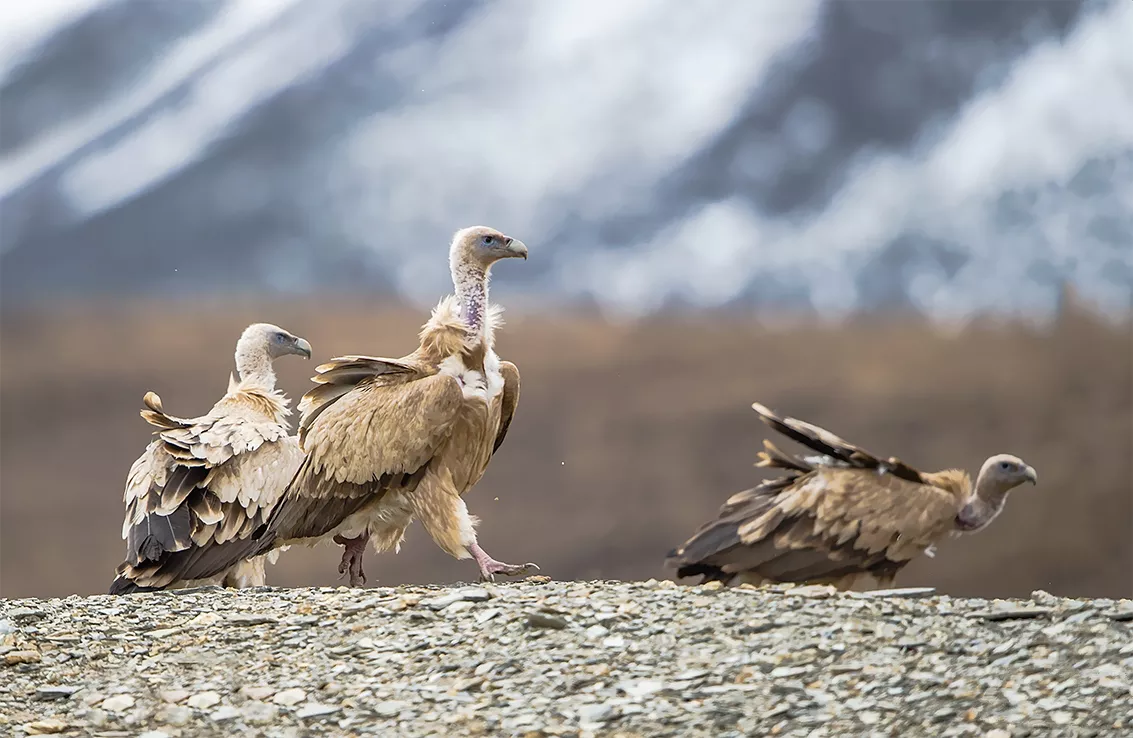Vultures, often associated with death and decay, play a vital role in maintaining ecological balance. These majestic birds are nature’s clean-up crew, efficiently disposing of carrion and preventing the spread of diseases. While their scavenging habits may seem unappetizing to some, vultures serve as essential ecosystem service providers. In this article, we will explore the dietary habits of vultures, shedding light on their feeding preferences, adaptations, and the crucial role they play in maintaining healthy ecosystems.
The Scavenger’s Menu
Vultures are primarily scavengers, meaning they feed on dead animals. Their diet consists mainly of carrion, which includes carcasses of mammals, birds, reptiles, and even fish. They have an exceptional ability to locate carrion from great distances using their keen eyesight and acute sense smell. Vultures are attracted to the scent decaying flesh, allowing them to quickly find a meal.
Adaptations for Carrion Consumption
Vultures possess several adaptations that enable them to consume carrion efficiently. Their bare heads and necks minimize bacterial contamination and make it easier to keep clean. This adaptation is particularly important since vultures often insert their heads into carcasses while feeding. Additionally, their strong beaks are well-suited for tearing through tough skin and muscle, allowing them to access the nutrient-rich internal organs.
The Role of Vultures in Disease Control
One of the most significant contributions of vultures to ecosystems is their role in disease control. By consuming carrion, vultures prevent the spread of pathogens and reduce the risk of disease transmission. They have highly acidic stomachs that can neutralize many harmful bacteria, including those responsible for diseases such as anthrax and botulism. This unique adaptation allows vultures to consume carcasses that would be toxic to other animals.
Vultures as Nature’s Clean Crew
Vultures’ feeding habits make them invaluable in maintaining the cleanliness of their habitats. They efficiently remove carrion, preventing the accumulation of rotting flesh that could attract disease-carrying insects and scavengers. Without vultures, ecosystems would face the risk of disease outbreaks and ecological imbalances caused the unchecked proliferation of carcasses.
10 Interesting Facts About Vultures
Here are some interesting facts about vultures:
1. Vultures are large birds of prey that belong to the family Accipitridae and are found on every continent except Antarctica and Australia.
2. There are two main types of vultures: New World vultures, found in the Americas, and Old World vultures, found in Europe, Africa, and Asia. They are not closely related but have evolved similar characteristics due to convergent evolution.
3. Vultures have a unique adaptation for scaveng. Their bald heads and necks help prevent bacteria and other pathogens from sticking to their feathers while feeding on carrion.
4. Vultures have an excellent sense of smell, which allows them to locate dead animals from great distances. Some species can detect the scent of decaying flesh from over a mile away.
5. Unlike most birds, vultures have weak feet and lack grasping talons. Instead, they have sharp beaks that are adapted for tearing through tough animal hides and accessing the meat inside.
6. Vultures play a crucial role in ecosystems by cleaning up carcasses and preventing the spread of diseases. They have highly acidic stomachs that can digest bacteria and toxins that would be harmful to other animals.
7. Vultures are known for their soaring flight. They have long wingspans and can glide for hours without flapping their wings, using thermal air currents to stay aloft.
8. Some vulture species, such as the Andean condor, have one of the largest wingspans of any bird, reaching up to 10 feet (3 meters) across.
9. Vultures are generally social birds and often gather in large groups called “wake” “committee” at feeding sites. These gatherings can include hundreds or even thousands of individuals.
10. Unfortunately, many vulture species are facing population declines and are considered threatened or endangered. Habitat loss, poisoning from ingesting pesticides, and illegal hunting are some of the main threats they face.
Conclusion
Vultures play a vital role in maintaining healthy ecosystems by consuming carrion and preventing the spread diseases. Their adaptations for scaveng, such as keen senses, specialized beaks, and highly acidic stomachs, enable them to efficiently process carcasses. By removing decaying flesh, vures prevent the proliferation of pathogens and maintain the cleanliness of their habitats. However, vultures face significant threats, and their populations are declining globally. It is imperative to raise awareness about the importance of vultures and implement conservation measures ensure their survival. Protect these nature’s clean-up crew will contribute to the overall health and balance of our ecosystems.


 Facebook
Facebook  Instagram
Instagram  Youtube
Youtube 